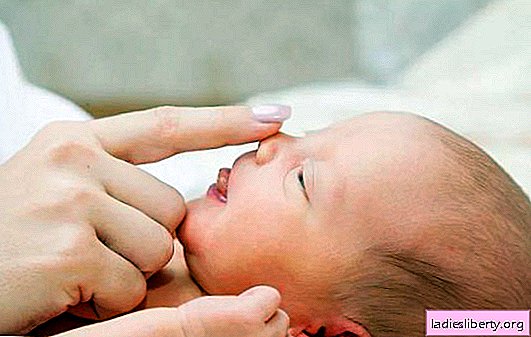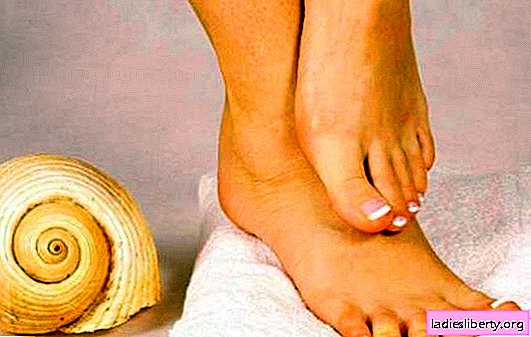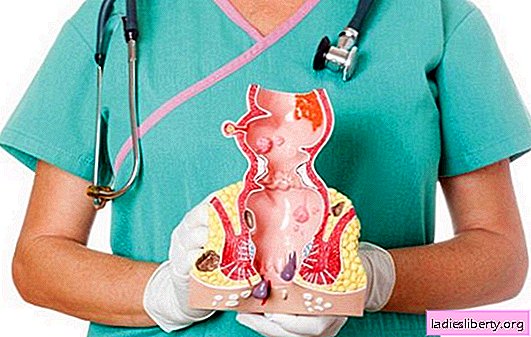
Up to two months, the presence of a large amount of nasal discharge in an infant is not always a symptom of a cold. At this age, this can be a physiological phenomenon, the work of the mucous membranes is not fully regulated: They fully begin to function after 10 weeks of life.
Before you begin to independently treat a runny nose (rhinitis) in a newborn, you need to contact a pediatrician. What to do with a runny nose in a newborn, the doctor will decide after the examination: he will make a diagnosis and prescribe the necessary treatment.
Types of the common cold, its clinical manifestations
In addition to copious discharge from the nose, which is physiological in nature, a runny nose in a newborn can be:
• infectious or viral:
• allergic;
• vasomotor.
The tactics of treatment depend on the nature of rhinitis. Vasomotor runny nose is associated with the presence of problems in the vessels of the mucosa and in newborns is rare.
Complications
Despite the fact that a runny nose passes quickly enough sometimes without treatment, it can cause complications that require sufficient effort and time for successful therapy. Although sinusitis does not develop in newborns, the infection can spread from the nasopharynx to the respiratory tract and cause otitis media, conjunctivitis, bronchitis and even pneumonia. Due to the fact that infants are poorly resistant to infection, when a newborn has a runny nose, it must be treated.
With any type of rhinitis, swelling of the mucosa occurs and partially or completely breathing through the nose is disturbed. This disrupts breathing through the nose, so the child cries, is naughty, refuses to eat. Probably a rise in temperature. But this is due to a malfunction of the nervous system, and not the disease itself.
At this age, a newborn can not clean his nose, because he does not know how to blow his nose. The complexity of the situation also lies in the anatomical features: a child at this age has small sizes of the nasal cavity, narrow nasal passages, a very delicate mucous membrane that swells easily.
If a newborn has a runny nose - what to do
If a newborn has a runny nose, it is first necessary to observe a certain regimen. At elevated temperatures, it is not recommended that the child bathe in the bath. It should be at home. After the temperature has returned to normal, you can walk outside. Bathing is allowed for 4-5 days after normalization of temperature.
If you refuse food, feeding is not recommended. But it is necessary to give a large amount of fluid, because with the discharge from the nose, he loses a lot of fluid. To drink it, you need to give boiled water.
When a newborn has a runny nose - the use of drugs
If the temperature is not elevated, than to treat a runny nose in a newborn, what to do - the doctor will advise. In such cases, they are usually limited to local treatment and use appropriate dosage forms:
• nasal drops;
• sprays.
In newborns, drops are preferable.
All drugs for the local treatment of the common cold by the mechanism of action are divided into groups:
• vasoconstrictor;
• moisturizing;
• with antiseptic properties;
• antiviral.
Vasoconstrictor drops
When prescribing vasoconstrictor drops, their use should be careful: it is necessary to strictly adhere to the instructions and not exceed the dosage (number of drops). Apply 1 drop three times a day. It is better to use the minimum dose: drip twice a day - before daytime and nighttime sleep. If the purpose of the vasoconstrictor drops is not agreed with the pediatrician, they should not be used for more than 3 days. They have serious side effects: they can cause anxiety, insomnia, an unpleasant sensation of dryness in the nose, vomiting, tremors, convulsive syndrome.
The most popular children's vasoconstrictor drops that are approved for use in newborns: Nazivin baby, Otrivin baby, Nazivin children 0.01%.
They well remove swelling of the mucous membrane, and, therefore, restore breathing through the nose, reduce the amount of mucus formed. The action of the drugs begins in a few minutes and lasts 12 hours. Do not irritate the nasal mucosa, do not cause redness.
To avoid overdose in newborns, the pipette has a graduation with drop marks. If 1 drop is prescribed, the solution is pipetted to the level of 1. Even the following method of applying drops is effective: 1 drop is applied to cotton and wipe the nasal passage.
Antiviral drops
Antiviral drops: Grippferon, Interferon. They act quickly with a viral infection. The frequency and duration of admission is determined by the doctor. They are especially effective in children with reduced immunity.
Antibacterial drugs
Antimicrobial drops are used when the discharge from the nose becomes a thick consistency of green or yellow. This means that there is a bacterial infection. In such cases, Protargol, Albucid are prescribed. Protargol is a silver-based drop that has antiseptic properties. They are made in a pharmacy with a prescription. Albucid (sulfacyl sodium) is an eye drop, but it is also approved for use as a nasal.
It is not recommended to use them on their own and without urgent need: these drops greatly dry the mucous membrane and can cause a burn.
Moisturizers
When a newborn has a runny nose, regardless of its cause, the nasal mucosa dries up, which creates additional discomfort to the baby and worsens overall well-being. If this occurs with a runny nose in a newborn, what to do, the pediatrician will advise when examined. Mandatory drugs are prescribed to reduce the drying of the mucosa. They are available in the form of a spray so that it is convenient to irrigate the entire mucous membrane of the nose. In addition to the moisturizing effect, some drugs have anti-inflammatory and immunostimulating effects. The safest, designed for use in newborns (children under the age of 1 month):
• drops AquaMaris, Aqualor baby;
• saline nasal spray;
• special means Aqualor baby "Soft shower".
They are prepared from sea water or saline, completely safe, they are difficult to overdose. In the absence of these funds, saline solution can be used. Apply every 2 hours in 3 drops or 1 dose of spray, and before instillation of another therapeutic drug. Thus, the nasal cavity is cleansed and medications that narrow the blood vessels, antiviral or antibacterial, work better.
When instilling, the child's head should be well fixed, and the tip of the pipette should not be inserted into the nasal passage more than 0.5 cm, so as not to injure the mucous membrane.
What to do when a newborn has a runny nose - home remedies
In addition to ready-made medications prescribed by your doctor, you can use your own medicines.
Expensive moisturizing drops are interchangeable with saline. Its proportions: for 1 cup of boiled water - ¼ teaspoon of salt. Every 4 hours, a fresh solution should be prepared. It is used, like ready-made drops: with the same frequency and frequency.
Anti-inflammatory and antiviral effects have carrot and beetroot juices. Apply 1 drop in each nasal passage 3 r / day, previously diluted with water or any vegetable oil 1: 1.
Aloe juice is prepared from the pulp of the lower leaves of a three-year-old (and older) plant. The leaves are cleaned of the upper dense layer, the pulp is kept in the refrigerator for several days, squeezed juice, diluted with boiled water in a ratio of 1: 1 and use 1 drop 3 r / day.
Often used to treat a runny nose in a newborn, breast milk. It contains many vitamins, minerals, immune complexes, moisturizes the mucosa well and is considered completely harmless. But still it is not recommended to use it in the form of drops in the nose: it does not have antibacterial or disinfectant properties. Due to the presence of sugars, proteins, bacteria can multiply in it with great speed. This can harm the newborn. Do not use means that irritate the mucous membrane: juice of Kalanchoe, onion, garlic.
With timely and competent treatment, the condition of the newborn is normalized within a week. In order for the treatment to be successful, even when using only home remedies, you need to consult a pediatrician from the first day and follow all recommendations for the regimen and treatment.











